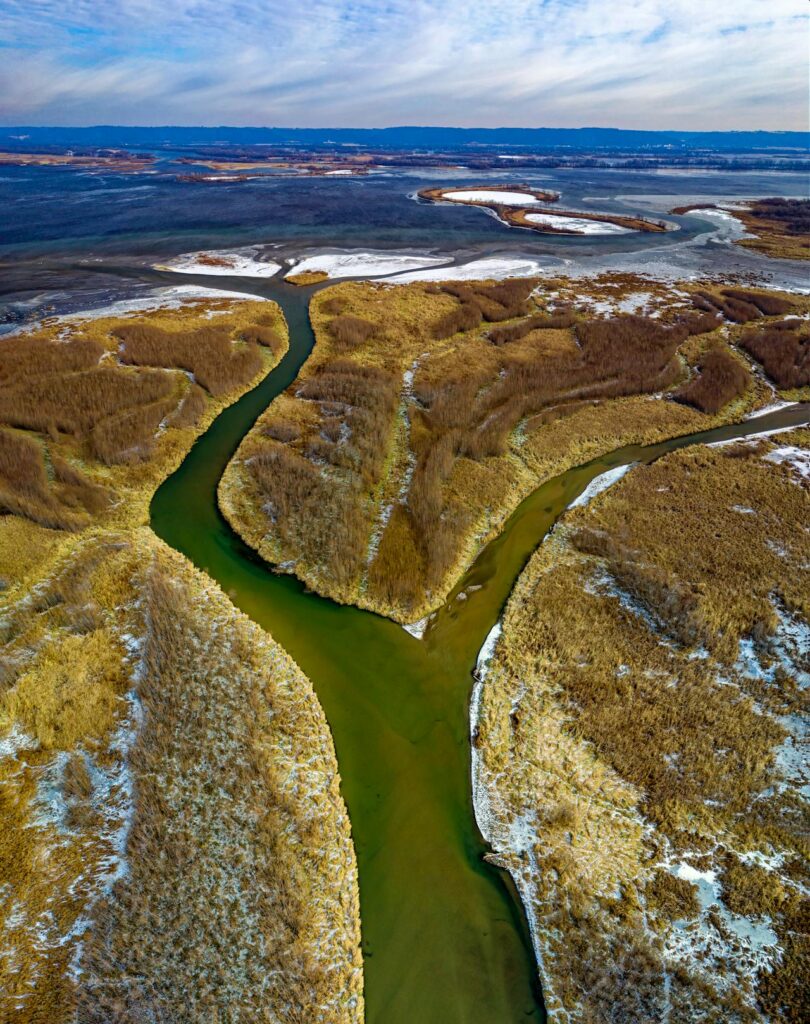Feature image taken from Pexels
From the flowing Ganges and Amazon to small village streams and majestic river deltas, freshwater systems are the arteries of our planet. They don’t just quench our thirst—they feed nations, power cities, sustain biodiversity, and shape civilizations.
Yet, despite their vital role, our rivers, deltas, and freshwater resources are under growing threat, shrinking at alarming rates due to pollution, overuse, climate change, and mismanagement.
💧 Why Freshwater Systems Matter So Much
🌱 1. Source of Life
- Only 2.5% of Earth’s water is freshwater, and just 1% is accessible for human use.
- Rivers, lakes, and streams provide drinking water for more than 70% of the global population.
🐠 2. Cradle of Biodiversity
- Freshwater ecosystems host over 10% of known species, including amphibians, fish, aquatic plants, and birds.
- The Amazon River alone sustains over 3,000 species of fish.
🍚 3. Agriculture and Food Security
- Irrigation from rivers supports 70% of global agriculture.
- Deltas like the Nile, Mekong, and Ganges-Brahmaputra are food baskets for billions.
⚡ 4. Energy and Economy
- Hydropower from rivers generates around 16% of global electricity.
- Rivers facilitate trade, tourism, and fishing industries, providing livelihoods for millions.
🧘♂️ 5. Cultural and Spiritual Value
- Rivers like the Ganga, Danube, Yangtze, and Mississippi are deeply rooted in cultures, religions, and identities.
📉 The Alarming Decline of Freshwater Resources
🧾 Shocking Statistics:
- One-third of major rivers (like the Colorado, Yellow, and Indus) no longer reach the sea year-round due to excessive water extraction.
- According to WWF’s Living Planet Report (2022), freshwater species populations have declined by 83% since 1970.
- Over 2 billion people currently live in countries experiencing high water stress.
- Wetlands, which act as natural water filters, have shrunk by 87% in the past 300 years.
🌡️ Root Causes:
- Climate Change – Altered rainfall patterns, glacial melt, and rising temperatures are drying up rivers.
- Pollution – Industrial discharge, pesticides, and untreated sewage kill aquatic life and contaminate water.
- Overuse – Excessive irrigation and diversion for cities leave rivers dry and deltas degraded.
- Damming and Engineering – While dams generate power, they often block fish migration, trap sediment, and harm natural river flow.
- Deforestation and Urbanization – Destroy watersheds and reduce natural water absorption.
🌍 Global & Local Actions: What Needs to Be Done?
🌐 At the Global and Government Level:
1. Protect and Restore Watersheds
- Implement river basin management plans.
- Reforest upstream areas to prevent erosion and restore groundwater.
2. Enforce Water Pollution Laws
- Limit industrial dumping and invest in wastewater treatment plants.
- Incentivize clean farming techniques to reduce pesticide runoff.
3. Rethink Dam Infrastructure
- Promote sustainable hydropower and adopt fish-friendly dams.
- Decommission obsolete dams to restore natural flow.
4. Transboundary Cooperation
- Many rivers flow across borders (e.g., Nile, Mekong, Indus). Countries must collaborate on shared water governance.
5. Climate Resilience Policies
- Integrate river conservation into national climate adaptation and disaster planning.
🏡 What Communities and Individuals Can Do
🤝 Community-Level Steps:
- Rainwater harvesting systems in schools, temples, and public buildings
- Community river clean-up drives and watershed monitoring
- Support local policies that protect wetlands and rivers
👤 Individual Action Points:
- Use Water Wisely
- Fix leaks, use efficient appliances, avoid wasting water
- Say No to Pollutants
- Avoid dumping oils, chemicals, or medicines down drains
- Support Eco-Friendly Products
- Choose biodegradable, non-toxic cleaning and beauty products
- Educate and Advocate
- Talk about rivers and water conservation in your networks
- Support NGOs and Campaigns
- Back groups restoring rivers and lobbying for water protection
💡 Reframing the Conversation: Freshwater as Sacred
Water isn’t just a resource—it’s a living system, a life-giver, and a natural right.
If we continue to treat rivers as commodities rather than communities, we risk losing more than just water. We lose culture, connection, climate resilience, and the future of our species.
🌊 Final Thoughts: A River Saved Is a Life Saved
As the world races towards development, we must not forget that no economy, no city, and no civilization survives without clean, flowing water.
From global agreements to local behavior change, everyone has a role to play in protecting the rivers and streams that sustain us.
Because once a river dies, it doesn’t just disappear—it takes life, history, and hope with it.
🔄 Have a river near your hometown that once flowed but now struggles to survive? Share your story. Let’s bring our rivers back to life—one drop at a time.

